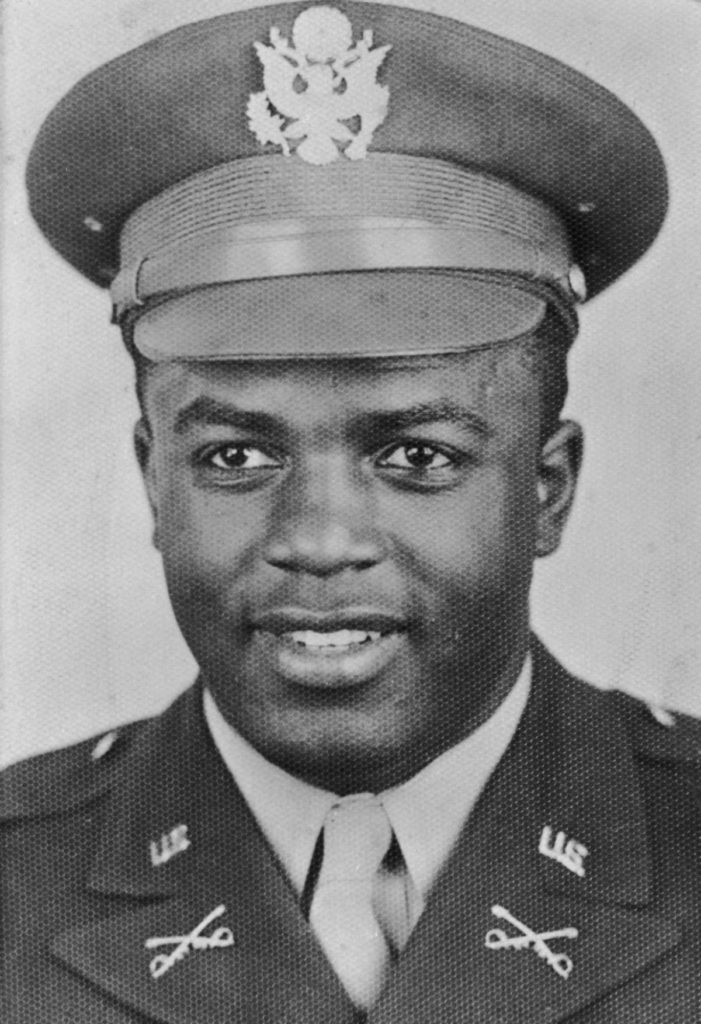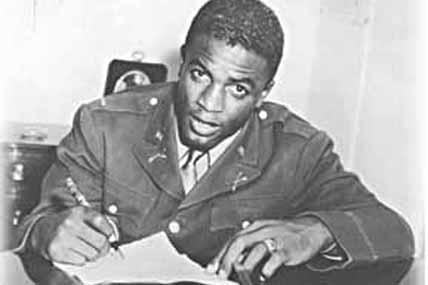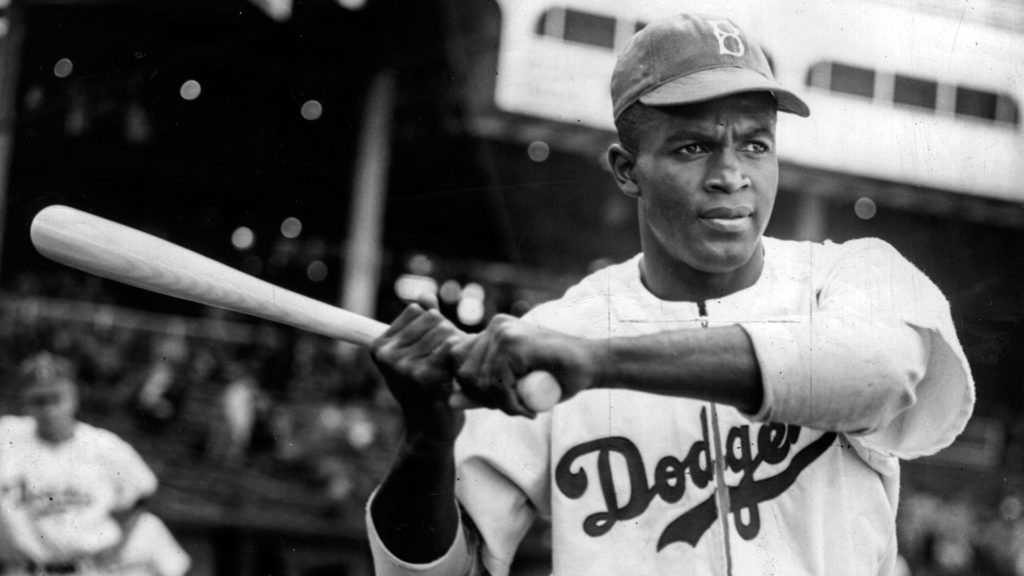Jackie Robinson’s Career in the Army
Did you know that April 15th is Jackie Robinson Day? On this day in 1947, Robinson broke Major League Baseball’s decades-old color barrier, when he stepped foot onto Ebbets Field as the Brooklyn Dodgers’ first baseman, wearing his now iconic number 42 jersey. However, few know that before his legendary career as a professional baseball player, Robinson served in the United States Army during WWII. Continue reading to learn more!
An Unjust Era
Jackie Robinson was drafted on April 3 , 1942, and was assigned to a segregated cavalry unit at Fort Riley, Kansas. While there, the college-educated Corporal Robinson applied for Officers’ Candidate School (OCS). Although the Army officially supported the training of black officers, few thus far had gained admittance to Fort Riley OCS, including the future baseball great. After experiencing repeated delays, Robinson was undeterred and approached Private Joe Louis, the heavyweight boxing champion of the world who was also stationed at Fort Riley, for help. Four years earlier, Louis had already secured his place in the annuals of sports history, when he defeated Hitler’s “Aryan Superman,” Max Schmeling, in their widely anticipated 1938 rematch.

The “Brown Bomber,” as Louis was known, was the reigning heavy-weight champ. While not an officer, Louis used his clout and wrote to his friend Truman K. Gibson, Jr., one of the few black lawyers in America at the time. Currently serving as an assistant to William H. Hastie, a civilian aide and adviser on racial affairs to Secretary of War Henry L. Stimson, Gibson became involved in the issue. Due to the Brown Bomber’s intervention and Gibson’s influence, Robinson was enrolled in OCS at Fort Riley, along with several other black Soldiers. Upon Robinson’s completion of OCS, he was commissioned as a 2nd Lieutenant in the United States Army on 28 January 1943.
His Fight For Equality
In 1944, while stationed at Camp (now Fort) Hood, Texas, 25-year-old Lieutenant Robinson was attached to the 761st Tank Battalion, an all-black unit which later distinguished itself in the Battle of the Bulge. On July 6, 1944, eleven years before the bus protest by civil rights activist Rosa Parks, Robinson refused to move to the back of a military bus he was riding in, when directed to do so by the white driver. In his autobiography, Robinson wrote that he told the driver: “The Army recently issued orders that there is to be no more racial segregation on any Army post. This is an Army bus operating on an Army post.” Furious, the driver escalated the incident; nevertheless the 2nd Lieutenant would not back down.

When the bus reached the end of the line, Military Police were called and took Robinson into custody. When Lieutenant Robinson challenged the racist line of questioning by the assistant provost marshal, the officer of the day, and others regarding his unjust treatment on the bus, he was arrested. As a result of the confrontation, several charges were brought against Robinson, to include insubordination, conduct unbecoming of an officer, refusing to obey the lawful orders of a superior officer, disturbing the peace, drunkenness (although he did not drink), and insulting a civilian woman. The beleaguered Lieutenant would face these trumped-up charges against him in a court-martial.
In a July 1944 letter from Robinson to Truman Gibson, who had earlier aided the former OCS candidate, he wrote: “I don’t want any unfavorable publicity for myself or the Army but I believe in fair play and I feel I have to let [someone] in on the case.” 2nd Lieutenant Jackie Robinson’s court-martial commenced on August 2, 1944. During the trial, cross-examination of the prosecution’s witnesses by Robinson’s attorney, Captain William Cline, revealed numerous inconsistencies in their testimonies. Robinson was ultimately acquitted on all charges.
After the Army
On November 4, 1944, Lieutenant Robinson was honorably discharged from the United States Army, allegedly due to two ankle injuries he sustained playing football in 1937, and again in 1941. A bone chip in Robinson’s twice-broken ankle periodically caused the joint to lock up, which made him physically unfit for military service. Now a civilian, Robinson was free to pursue a career in professional baseball.
Jackie Robinson’s moral courage and fierce opposition to racism while in the Army foreshadowed the impact the future Hall of Famer would have less than three years later, when number 42 stood at first base on Ebbets Field as a Brooklyn Dodger.

Incidentally, on July 26, 1948, just over a year after Robinson made his trailblazing appearance in the Major Leagues, Executive Order 9982 was issued by President Harry S. Truman, abolishing racial discrimination in the armed forces.
In 1997, Jackie Robinson’s uniform number 42 was retired throughout professional baseball. Subsequently in 2004, Major League Baseball designated April 15th as Jackie Robinson Day. On this day, every player, coach, manager, and umpire wears Robinson’s number to honor the man and his enduring legacy. Robinson not only changed the game of baseball by breaking the color barrier, but also by the way he lived his life with humility, poise, and an unwavering commitment to equality. Legendary number 42 continues to inspire the lives of others today. For more information regarding Jackie Robinson’s life, click here.



